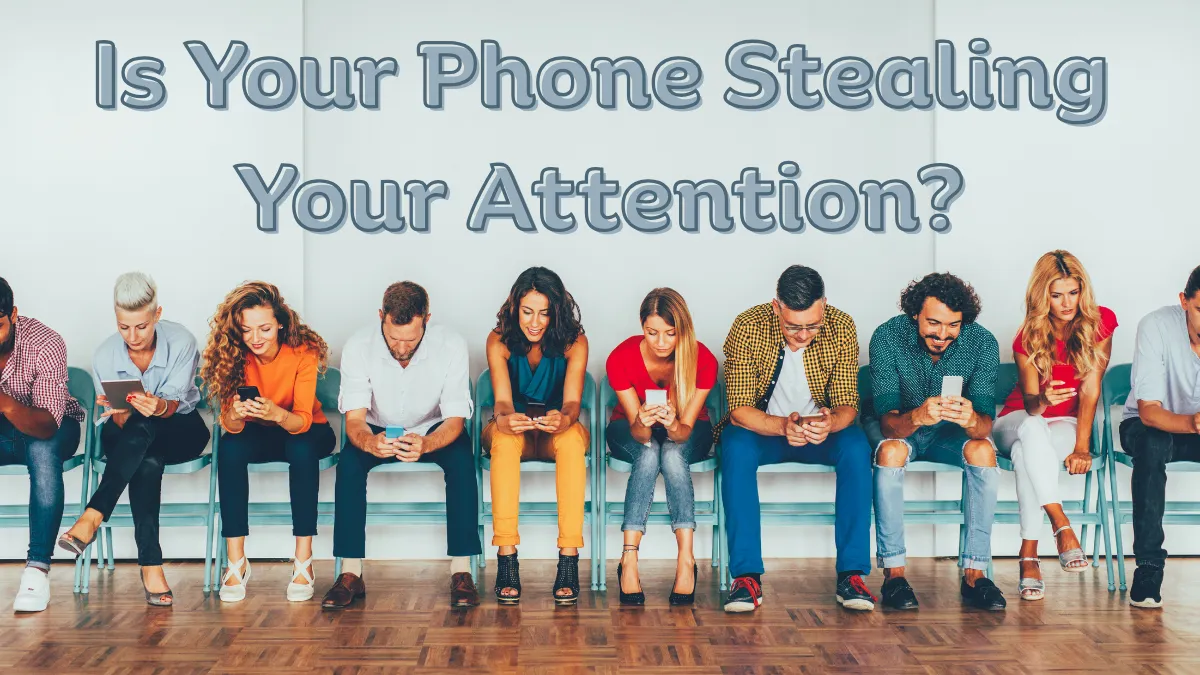Have you noticed that it’s getting harder to concentrate? You’re not alone. In today’s hyper-connected world, social media has become an almost inescapable part of our lives—and it’s quietly affecting our ability to stay focused.
What Social Media Is Doing to Your Mind — Backed by Neuroscience

The science is clear: social media is not just a time-waster; it’s rewiring your brain, shortening your attention span, and contributing to a digital distraction crisis.
In this beginner-friendly guide, we’ll explore what’s really happening inside your brain, how social media affects your productivity and mental health, and—most importantly—how to reclaim your focus in the digital age. Let’s dive in.
The Rise of Digital Distraction
Social media platforms are designed to be addictive. With endless scrolling, notifications, and curated content, they hijack your attention by triggering dopamine responses in the brain. This constant stimulation leads to digital distraction, making it difficult to focus on tasks for extended periods.
According to recent studies, the average human attention span has decreased to just 8 seconds—shorter than that of a goldfish. This alarming shift is largely attributed to our digital habits, especially on platforms like Instagram, TikTok, and X.
Social Media and Focus: What’s the Connection?
When we talk about social media and focus, we’re referring to how these platforms compete with your brain’s ability to stay on one task. Every time you check your feed during work or study, you’re engaging in task-switching, which reduces efficiency and increases mental fatigue.
This constant switching reduces focus and productivity, even when you’re not on your phone—because your brain is still recovering from the interruption. This is known in neuroscience as the “switch cost.”
How Social Media Affects the Brain
Let’s break it down.
- Rewiring the Brain with Social Media: Repeated use of social media strengthens neural pathways that favor short bursts of attention, while weakening those responsible for deep focus.
- Social Media and Brain Fog: The overload of information causes mental fatigue, leading to forgetfulness, reduced clarity, and sluggish thinking.
- Social Media and ADHD-like Symptoms: Constant digital stimulation mimics some symptoms of ADHD, such as restlessness, impulsivity, and reduced attention span.
Functional MRI studies have shown actual changes in brain structure in heavy social media users, particularly in the prefrontal cortex—responsible for focus, decision-making, and impulse control.
The Science Behind Focus Loss
The science behind focus loss involves a few core concepts:
- Dopamine loops: Likes, shares, and comments release dopamine, training the brain to seek immediate rewards.
- Cognitive overload: The brain can only process a limited amount of information at once. Constant updates from multiple platforms lead to mental clutter.
- Sleep disruption: Nighttime scrolling disrupts melatonin production, impacting memory consolidation and cognitive performance.
These effects aren’t temporary—they can contribute to long-term cognitive decline if not addressed.
The Effects of Social Media on Mental Health
Social media and mental health are deeply connected. While social platforms can foster connection, they often result in:
- Increased anxiety and comparison
- Lower self-esteem
- Chronic distraction and dissatisfaction
This emotional stress, combined with the constant pull for attention, worsens focus and decision-making. In the long run, it can trigger social media addiction—a compulsive behavior that takes priority over real-life responsibilities and rest.
Social Media and Attention Span Loss
Multiple studies confirm that prolonged social media use is directly linked to attention span loss. Users exposed to quick, repetitive content (like short videos) struggle with:
- Staying engaged in long-form content
- Delaying gratification
- Deep thinking and reading
This is a major factor behind the attention crisis in the digital age, where even adults feel unable to focus without external stimulation.
Social Media and Concentration Problems
Does social media affect concentration? Absolutely. Besides breaking your workflow, it also:
- Reduces working memory
- Increases mental fatigue
- Lowers task performance
What’s worse, this constant distraction leads to chronic underperformance, affecting academic success, job productivity, and even relationships.
The Psychology of Social Media Use
Understanding the psychology of social media use helps explain why it’s so addictive:
- FOMO (Fear of Missing Out) makes users check platforms more frequently.
- Variable rewards (likes, comments) keep the brain craving engagement.
- Social validation boosts dopamine, reinforcing the behavior loop.
Knowing this can help you take control and make healthier digital choices.
How to Improve Focus in the Digital Age
Thankfully, there are effective ways to combat the effects of digital distraction:
Practical Focus-Boosting Strategies:
- Use the Pomodoro Technique to work in focused intervals
- Keep your phone in another room while working
- Practice digital minimalism by deleting non-essential apps
- Set app timers to limit use
- Try mindfulness meditation for brain clarity
Implementing even a few of these can significantly improve your focus and productivity.
Digital Wellness Tips That Actually Work
Digital wellness isn’t about quitting social media—it’s about using it mindfully. Here’s how:
- Schedule screen time (e.g., 20 mins morning + 20 mins evening)
- Unfollow accounts that don’t add value
- Take a weekly digital detox (even for just 12–24 hours)
- Replace doomscrolling with healthy habits like journaling, walking, or listening to music
This helps break the cycle and supports long-term brain health and social media balance.
How to Break Social Media Addiction
Breaking free from social media addiction requires commitment but is totally achievable:
- Identify triggers: boredom, anxiety, etc.
- Replace social media with fulfilling activities
- Get accountability from a friend or therapist
- Use digital well-being features on your devices
As you detox, you’ll notice better sleep, sharper thinking, and reduced social media and brain fog.
Final Thoughts: Reclaiming Your Attention in a Noisy World
So, is social media killing your focus? The answer is yes—but the good news is, you can take back control. Through awareness, intentional habits, and understanding how social media affects the brain, you can regain your attention, boost your productivity, and improve your mental well-being.
You don’t need to quit the digital world completely—you just need to use it with purpose.
FAQs
1. Can social media cause permanent damage to my brain?
Not exactly permanent, but excessive use can lead to long-term changes in brain patterns, especially in attention and memory.
2. What are the signs of social media addiction?
Frequent cravings, loss of control, neglecting responsibilities, and feeling anxious when offline.
3. How can I help my child avoid attention problems from social media?
Limit screen time, encourage offline play, and teach digital literacy early.
4. Is deleting all social media the only solution?
No. Moderation and mindful use are more sustainable than quitting cold turkey.
5. Can meditation help improve my attention span?
Yes. Meditation enhances cognitive function, focus, and stress management.
6. How long should I detox from social media to feel results?
Even a 24–48 hour break can show improvements. Longer breaks offer better clarity.
7. What apps help manage social media use?
Try Forest, Freedom, Screen Time (iOS), or Digital Wellbeing (Android).
8. Is social media bad for everyone?
No. It depends on how and why you use it. Mindful, intentional use can be positive.
Join 25,000+ smart readers—don’t miss out!








